Grieving Lady Is About To Lose Her Late Boyfriend's Dog To His Mom, Seeks Advice On What To Do
It is incredibly stressful and heartbreaking to lose someone you love. Making sense of and accepting feelings of loss can be a difficult process.
Grief is a typical emotional and occasionally physical reaction to loss following a calamity or tragic incident. When a loved one passes away, you may experience bereavement or grief.
People of all ages experience grief, but how adults, adolescents, and children cope with it varies. OP's boyfriend was killed in a car accident, and she is attending grief counseling while coping as best as she can at the moment.
When OP's boyfriend was still alive, he got a cute puppy. At the time, he was living at home, as his parents lived close to their university.
OP and her boyfriend would meet up in a local park because he had a puppy, and she had an old, grouchy dog of a similar breed. The boyfriend's dog spent a lot of time at OP's place, and she helped with training, general care, and dog activities.
After they moved in together, OP took on many more responsibilities for the dog. She had to put her old dog down a couple of months ago, and she enjoyed having a dog to care for again.
Then came the late boyfriend's mom, who wanted to take the dog, saying that since the dog belonged to her son, it made sense for him to be returned to his family. OP didn't want to lose the dog, so she came online to seek advice.
OP kicks off her story
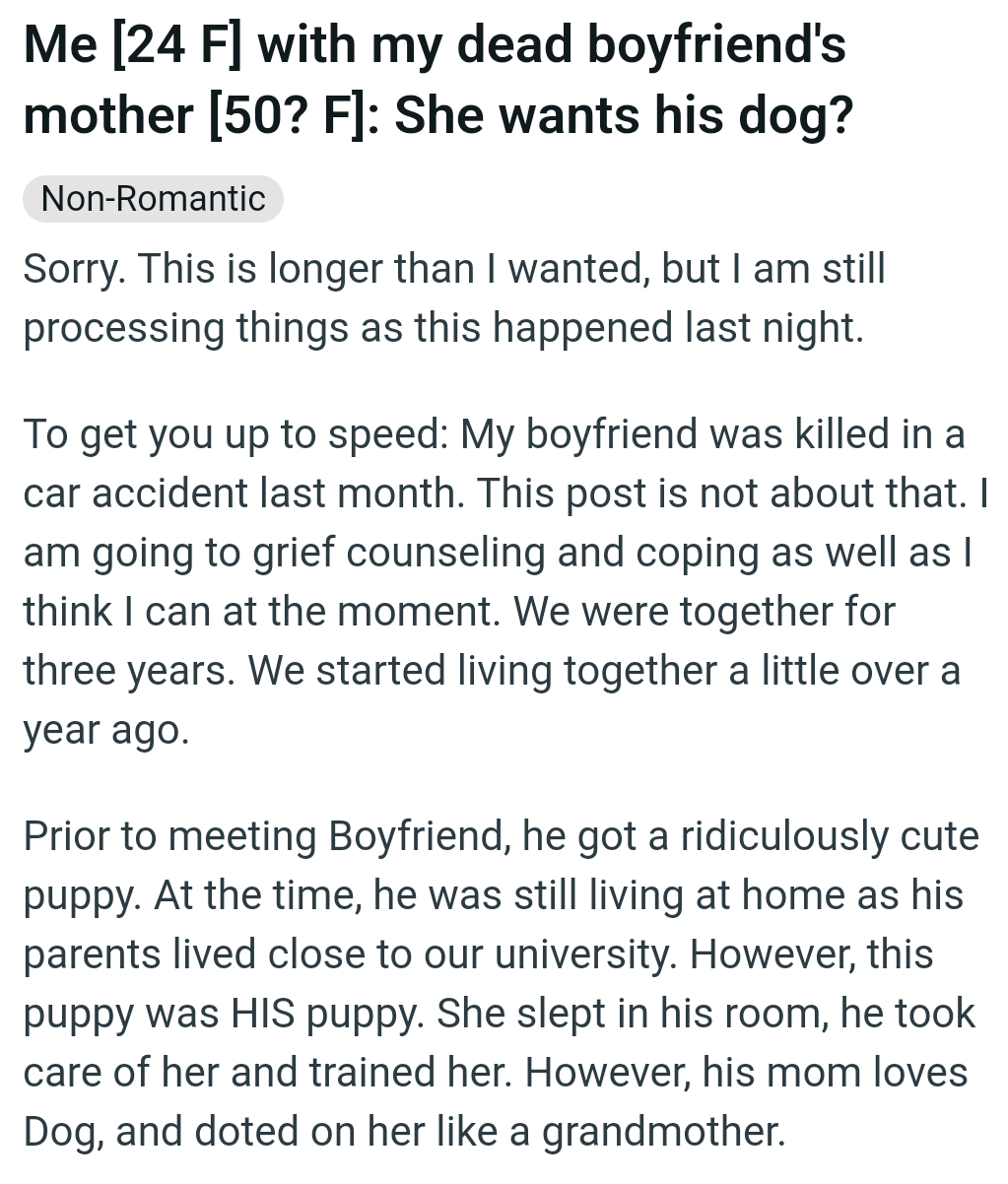
OP's boyfriend ended up getting a job with a long commute
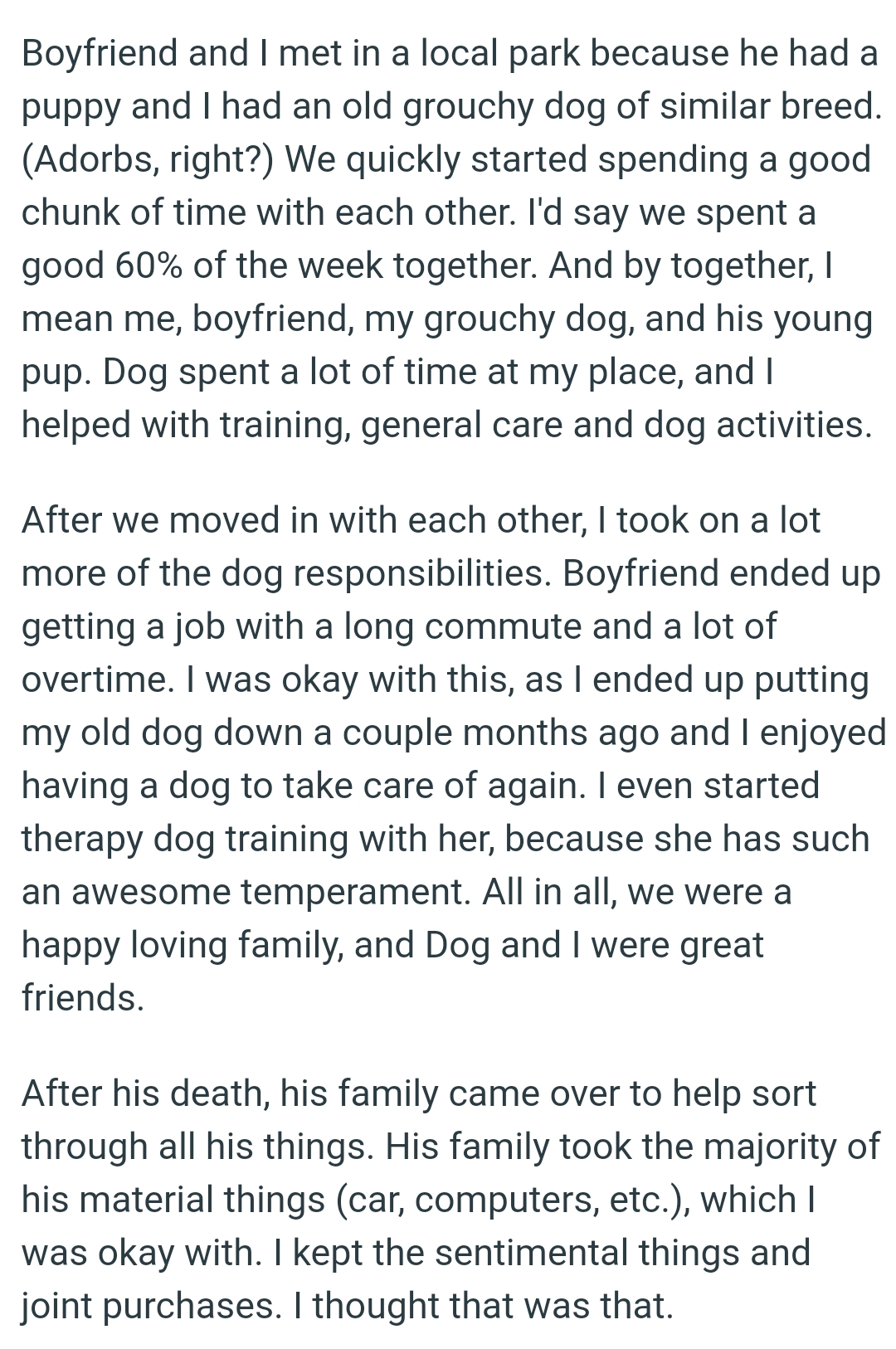
OP feels like they've been helping each other a lot through this time
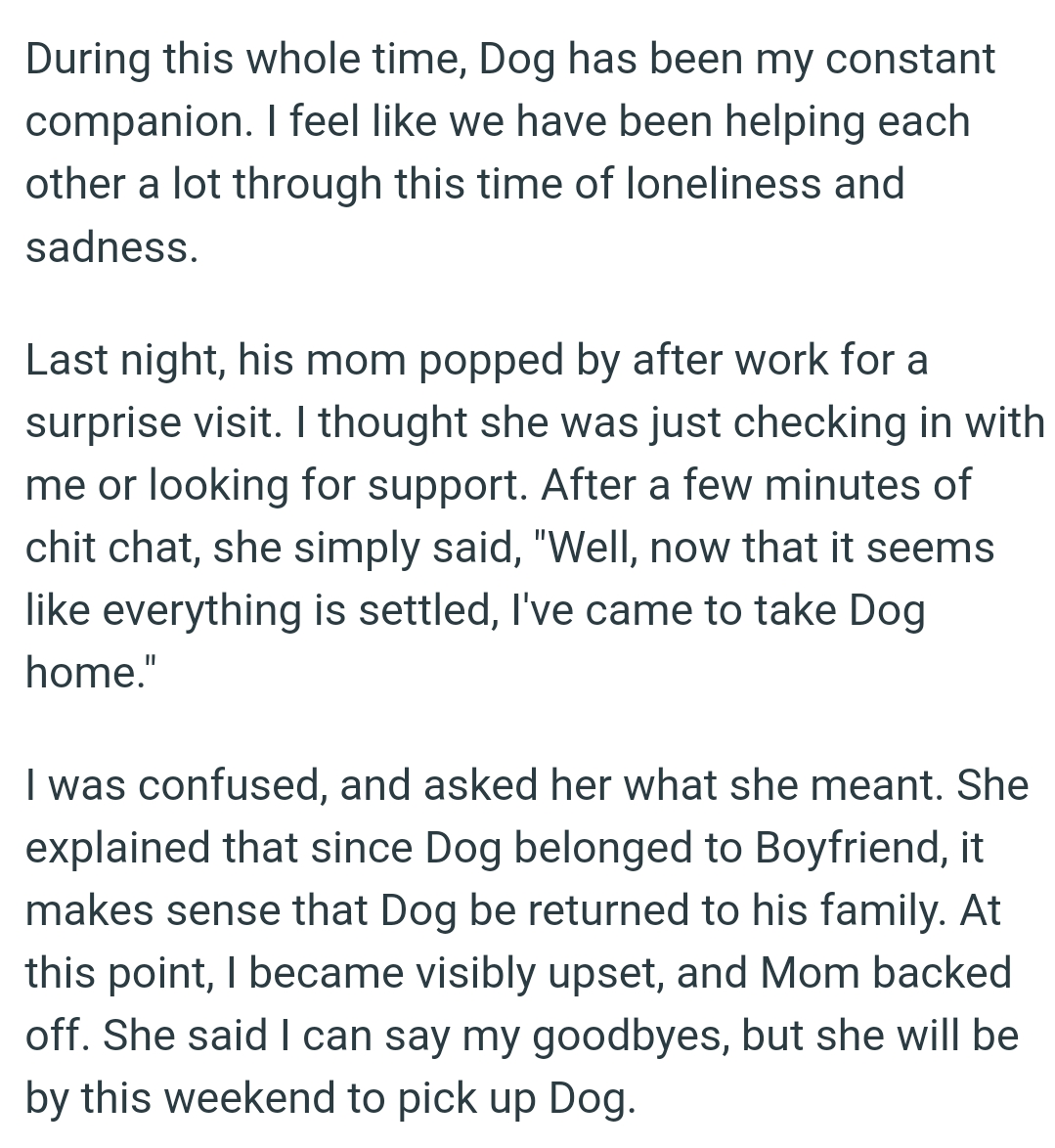
Navigating Grief and Loss
This situation exemplifies the profound impact of grief and attachment, particularly regarding the loss of a partner and the subsequent bond formed with their pet. Research from the Journal of Loss and Trauma indicates that pets often serve as emotional anchors during times of loss, providing companionship and comfort amid grief.
When faced with the potential loss of that pet, feelings of anxiety and fear can be exacerbated, reflecting the deep emotional ties formed during the relationship.
The OP recognizes that his mom has also lived with and spent a lot of time with this dog
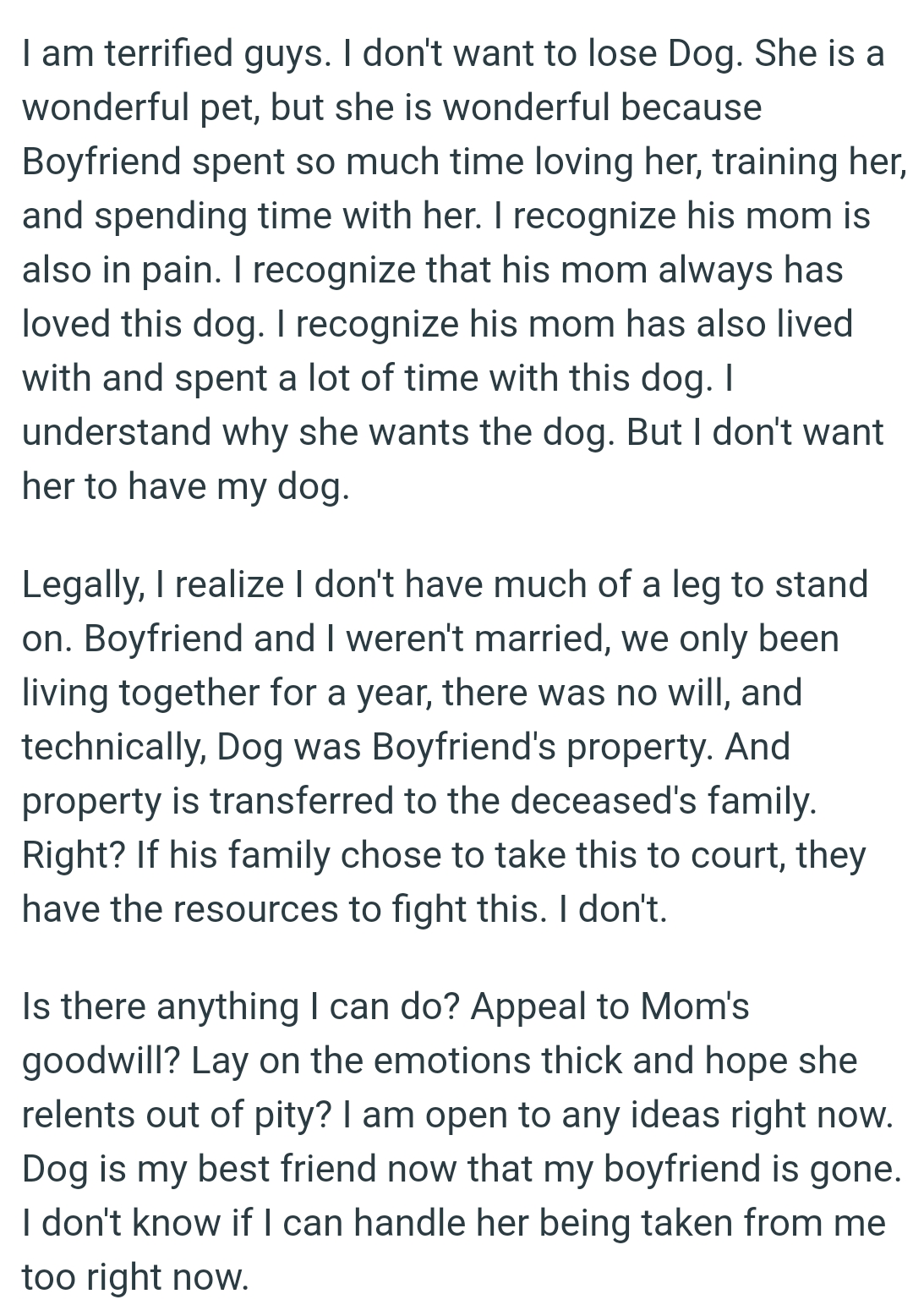
Later on, the OP added this afternote to further clear up some misconceptions
I just want to say his mom is NOT a bad person. She has always been polite, sweet, and caring. His whole family is a bit rigid and can be stubborn, but overall, I don't think they are malicious. I recognize why she wants the dog. It's the same reasons why I want the dog, which I guess makes this even more difficult.
Let's head into the comments section and find out what other Redditors have to say
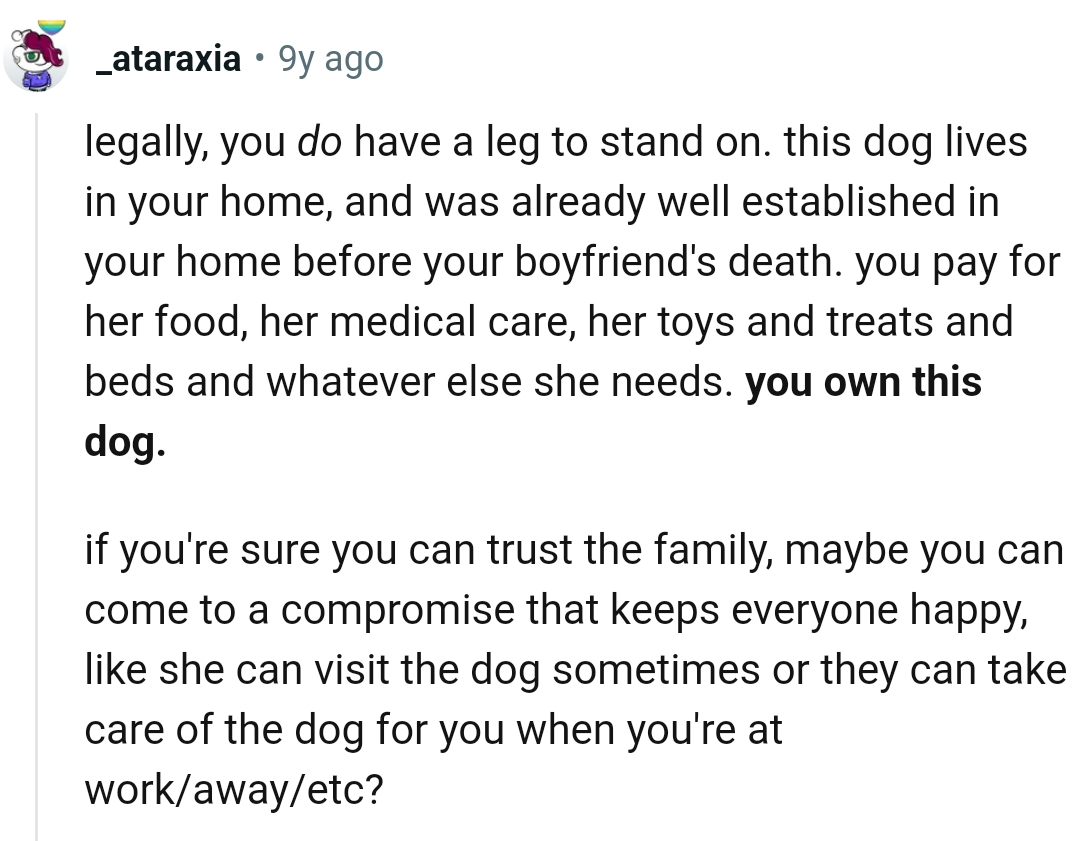
This Redditor hopes the OP can appeal to her
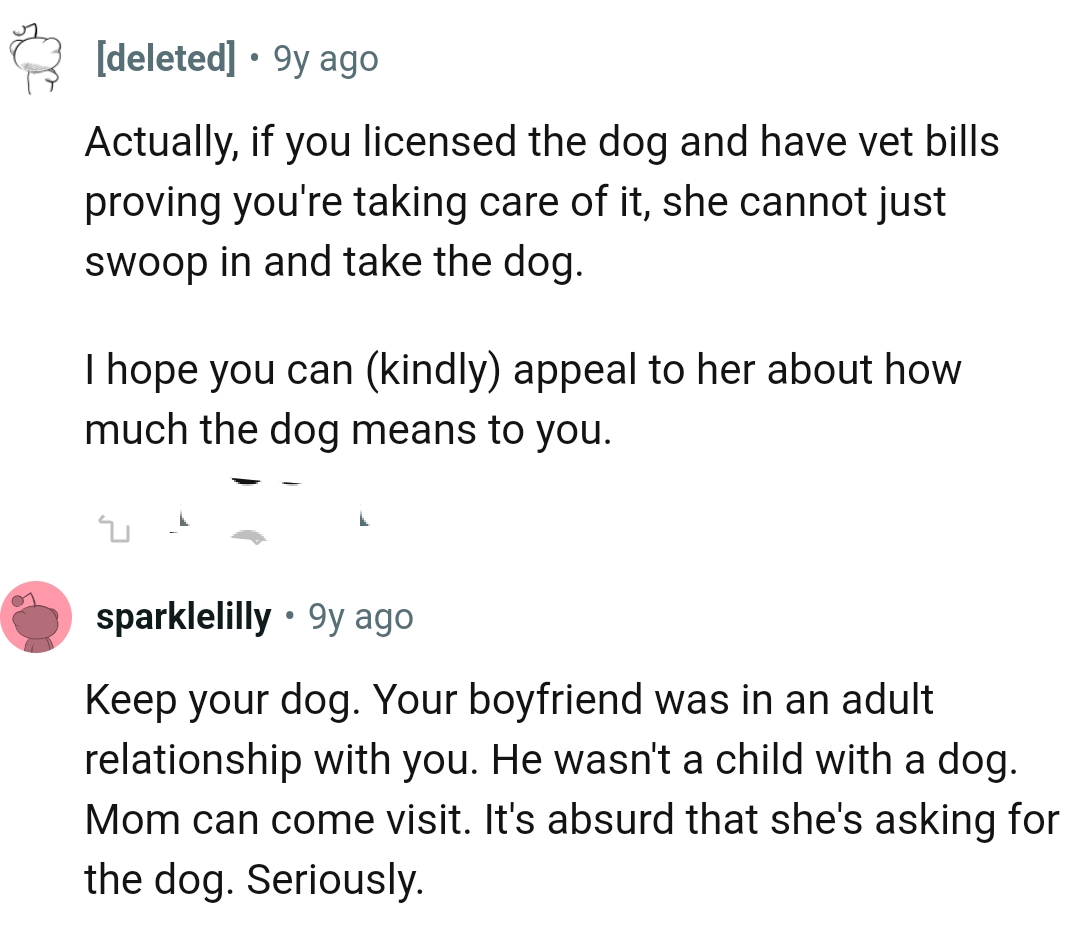
Attachment theory suggests that individuals often form strong emotional bonds with their pets, which can serve as a source of unconditional love and support. A study from the University of Toronto highlights how these attachments can become even more critical in the wake of personal loss, as pets often fulfill emotional needs that might go unmet elsewhere.
In this case, the dog serves as a living reminder of the lost partner, intensifying feelings of attachment and fear of separation.
It would be an immense kindness to give her the dog
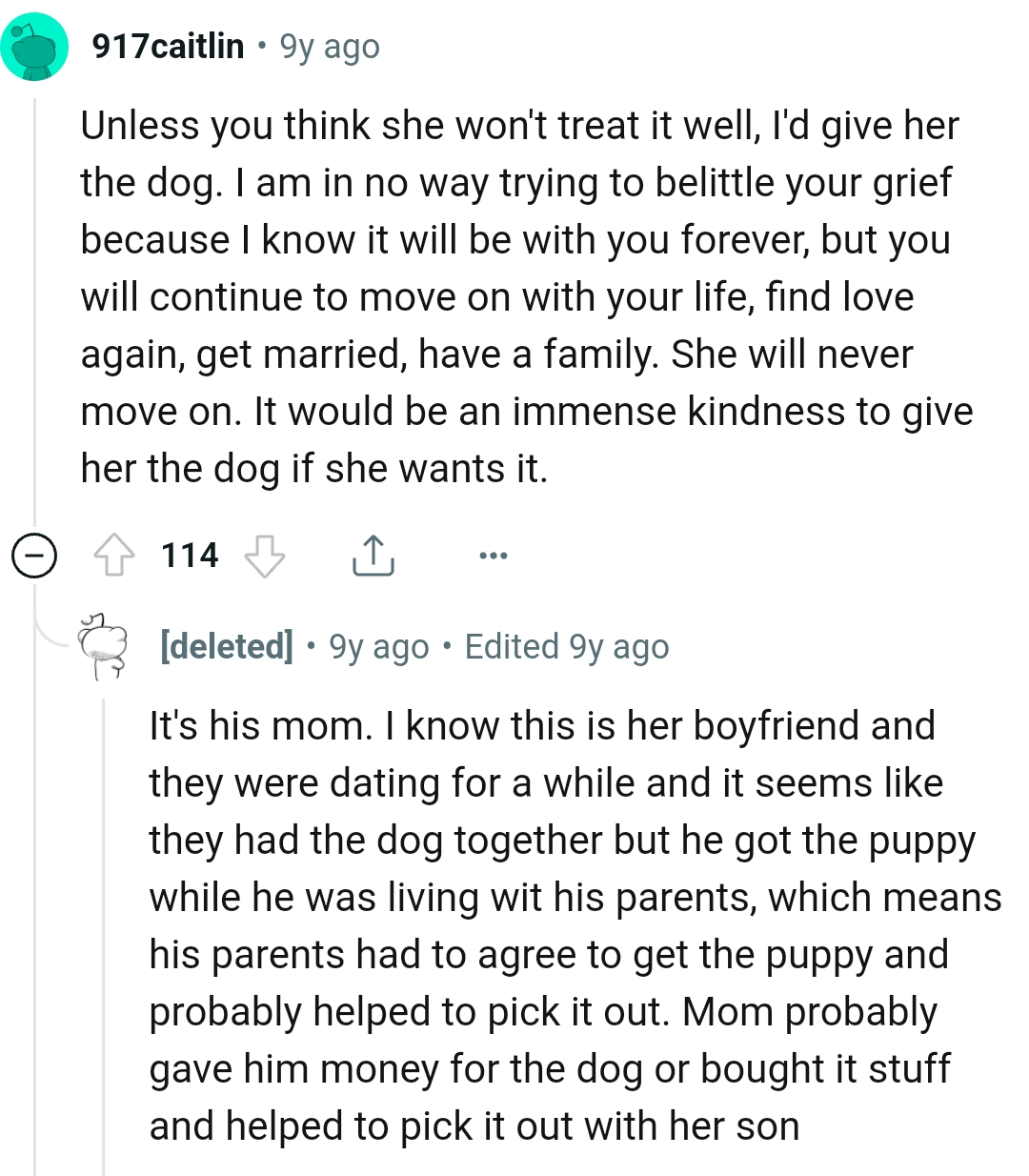
The OP is making this seem like this was her dog

It shows a lack of respect for the OP
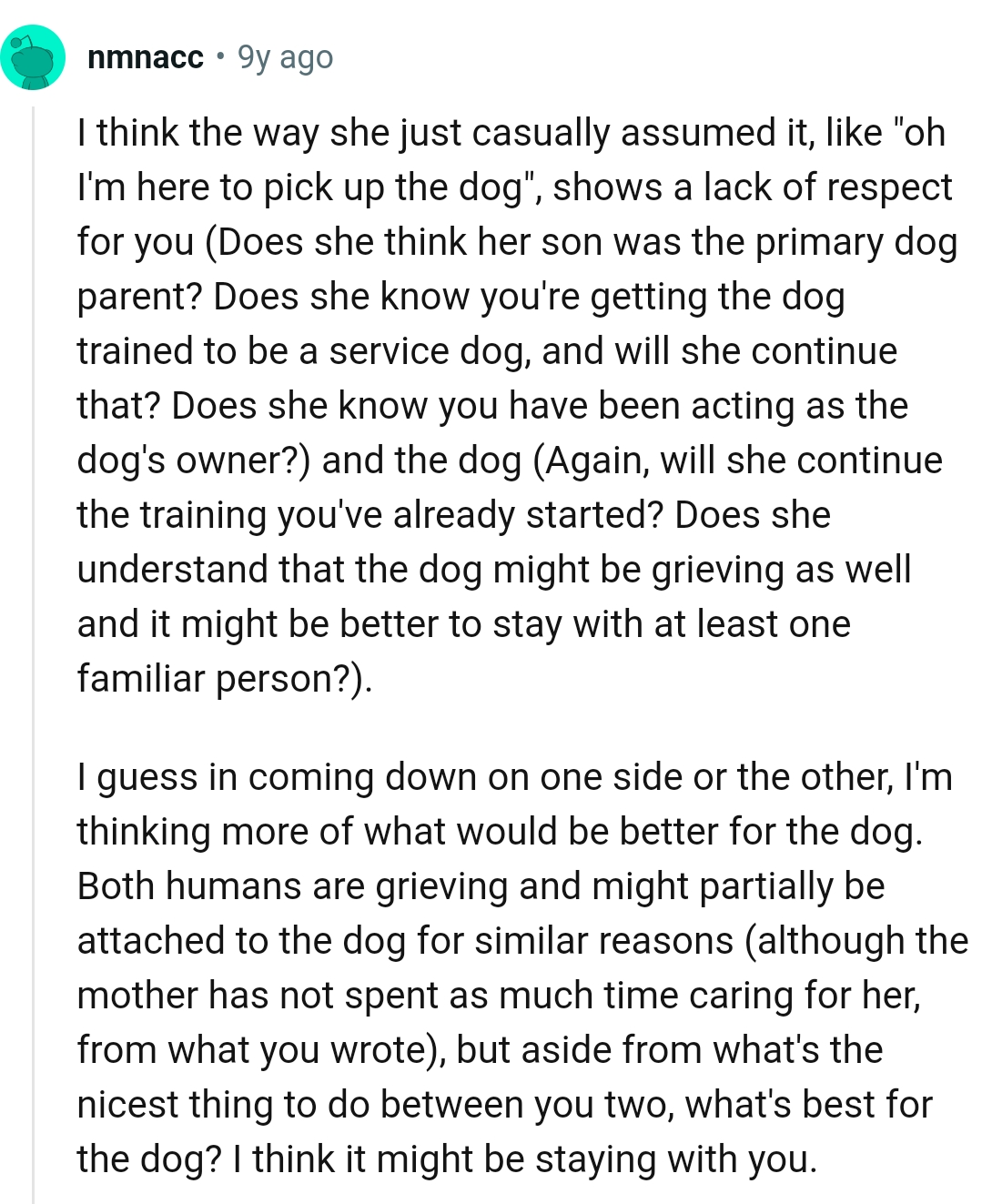
Understanding Complicated Grief
This scenario touches on the psychological concept of complicated grief, where individuals struggle to process loss due to the compounded nature of their emotional attachments. Dr. Tara Brach, a renowned psychologist and meditation teacher, states, "Complicated grief can manifest as a profound sense of longing and difficulty in moving forward." You can find more insights on her website, tarabrach.com. The attachment to the pet may complicate the grieving process, making it harder to let go.
She already took his personal property
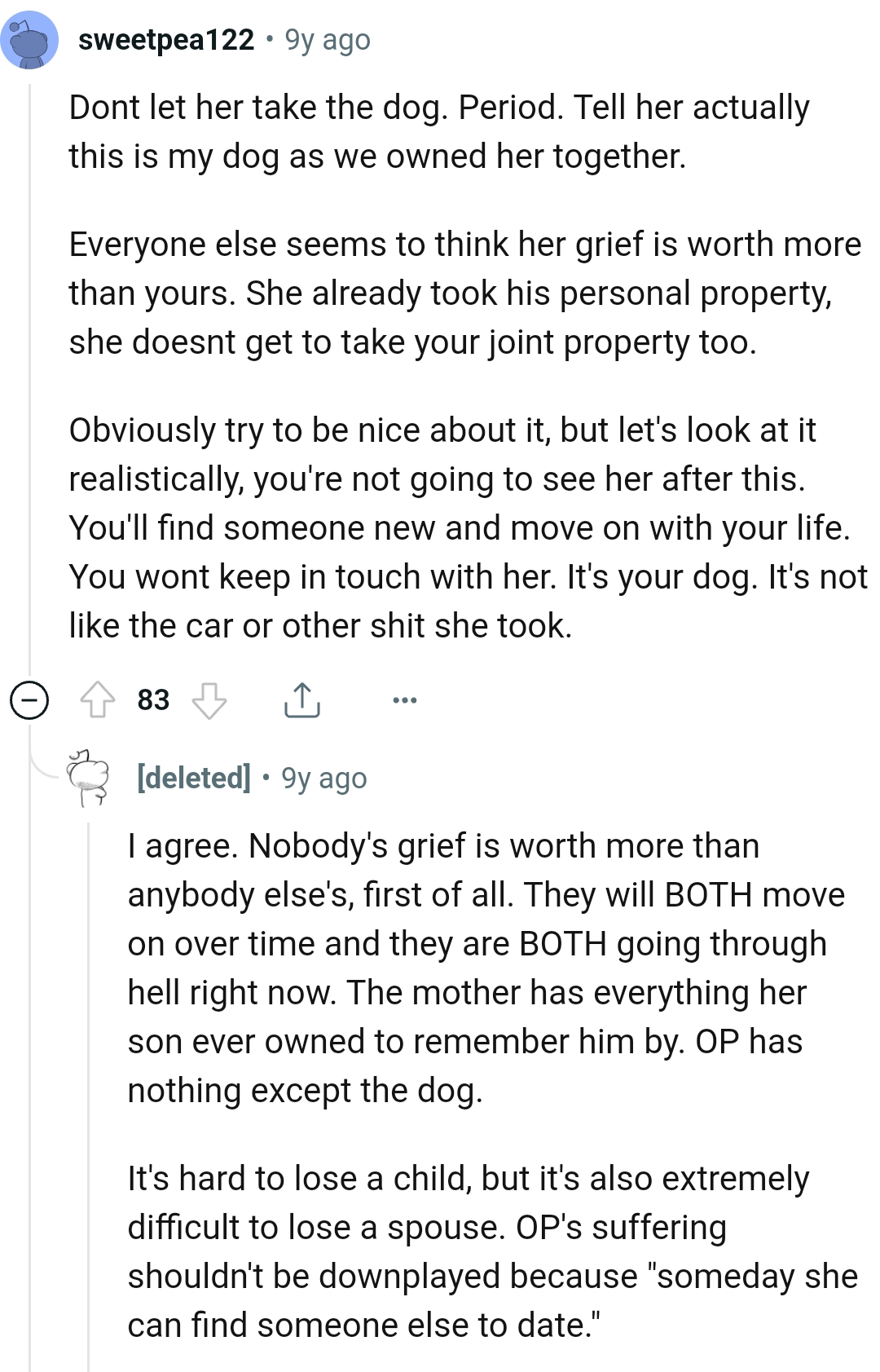
This is absolutely devastating
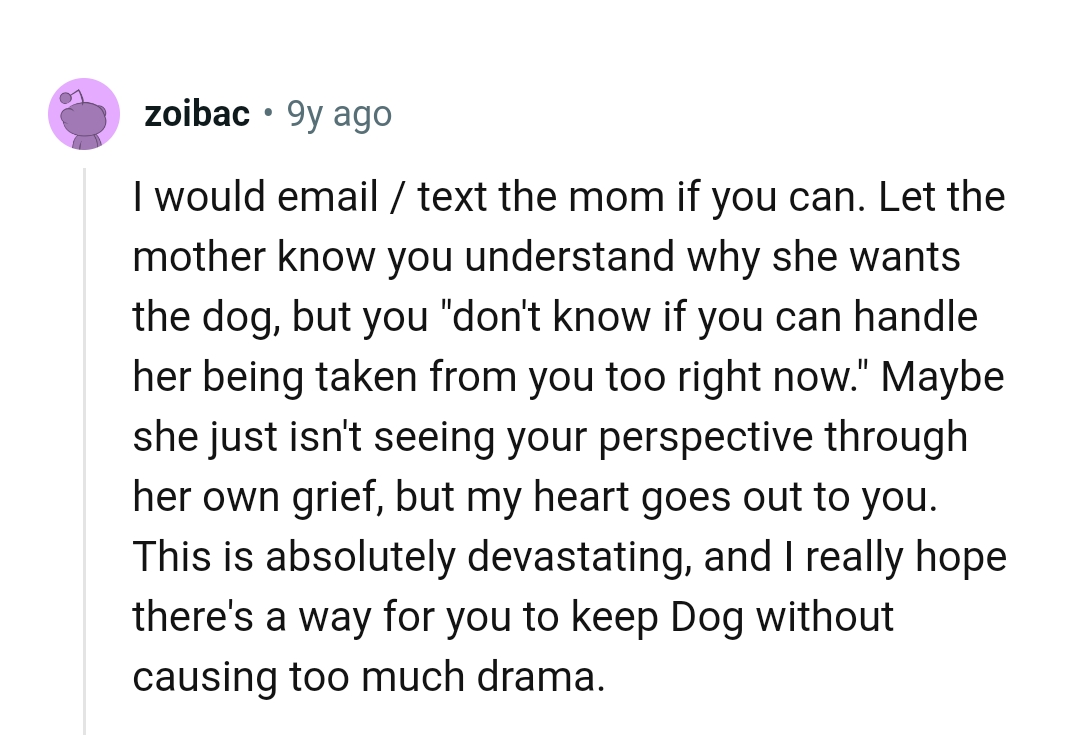
His mom will never have another son
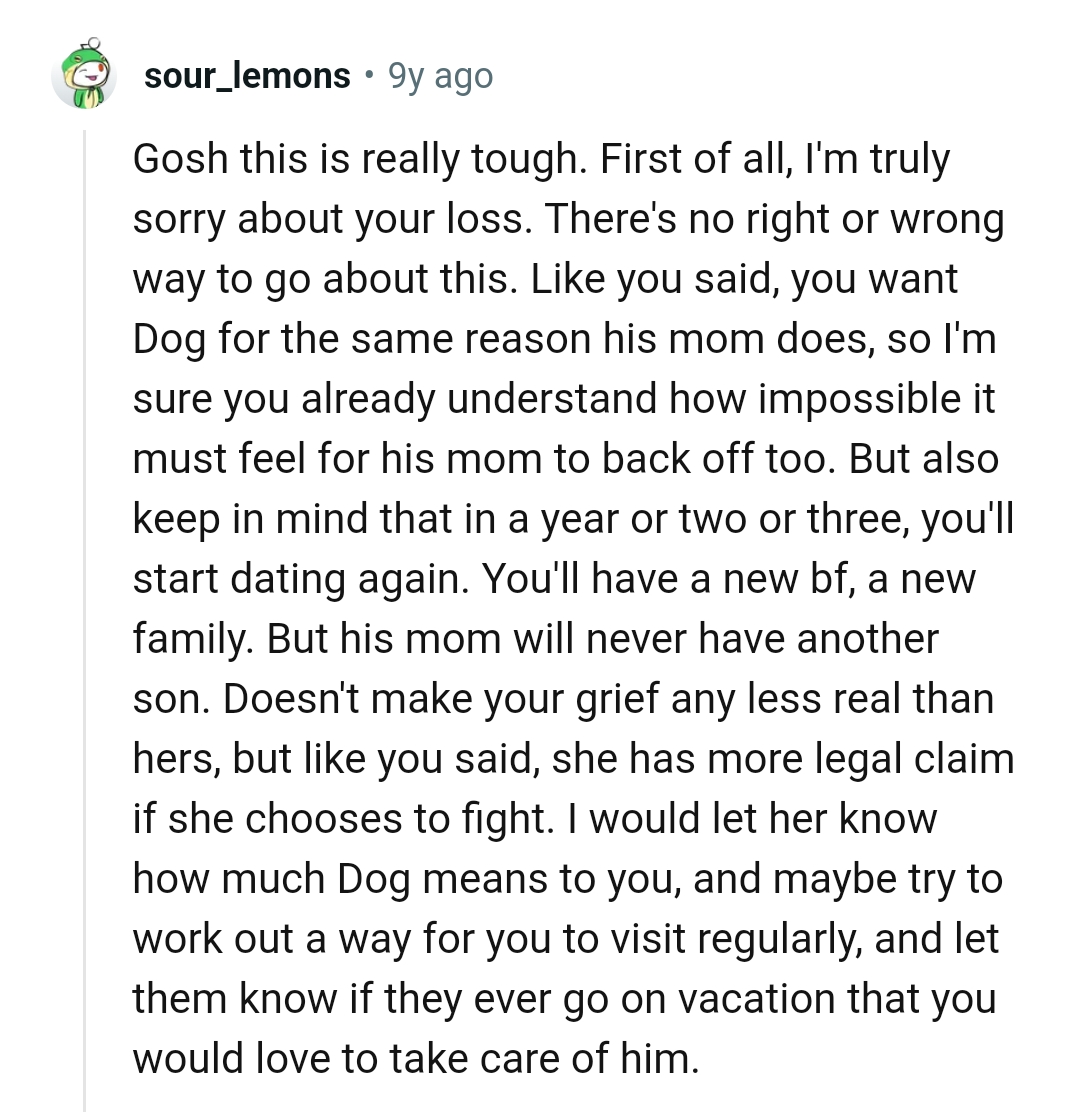
To navigate these feelings, it’s essential for the individual to engage in open dialogue about their grief while considering seeking professional support. Research suggests that therapy can provide a safe space to process these emotions and develop coping strategies.
Additionally, exploring ways to honor the memory of their partner while also preparing for the possibility of losing the dog may help create a sense of closure.
Emotions can vary from intense melancholy to violent outbursts. Each person grieves differently and takes a different amount of time, depending on how personally attached they are to the deceased.
OP lost her boyfriend and is about to lose the one thing that reminds her of him. A lot of advice was given, and it's left for OP to decide, as the boyfriend's mom is clearly intent on taking the dog.
Coping Strategies for Grief and Attachment
Coping with grief related to the loss of a partner and the potential loss of a pet requires a multifaceted approach. Studies from the University of California, Berkeley indicate that engaging in self-care practices and building a support network can significantly aid in the grieving process.
Finding ways to create new memories with the pet while also honoring the lost partner can help foster healing and resilience.
Psychological Analysis
The emotional struggle depicted here reflects the intricate ties between love, loss, and attachment. This individual is not only grieving the loss of a partner but also faces the fear of losing a cherished pet that has become a source of comfort. Addressing these feelings in a supportive manner can help facilitate healing and understanding during this challenging time.
Analysis generated by AI
Analysis & Alternative Approaches
This situation illustrates the deep emotional ties that can form between individuals and their pets, particularly in times of loss.
Research supports the importance of open communication and professional support when navigating complex grief and attachment issues.



